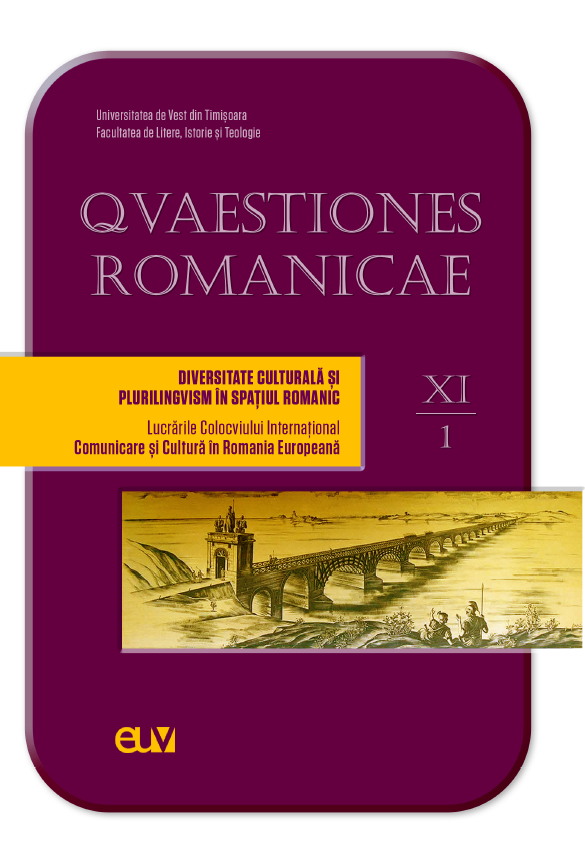Tristele și Ponticele ovidiene. Diversitas în exil
Abstract: (Ovidʼs Tristia and Pontica. Diversitas in exile) It is well known that, in the year 8 A.D. Ovidius was exiled to Tomis, on the shores of the Euxine Pontus, the Black Sea today, which caused him much suffering, removing him from his luxurious life in Rome. Thus, he was separated from his beloved wife, making him doubt the fidelity of some friends, fearing both his physical and mental safety, as none of his prayers have ever been taken into consideration by the emperor. The poetry of exile, represented by the 5 books of the Tristia and the 4 books of the Epistulae ex Ponto, casts a new light on Ovidius, the poet, turning to himself, becoming more aware of his weaknesses, fears, disappointment, unhappiness, all these caused by finding himself alone and deserted in an unknown country, in the middle of people governed by other traditions, by other mores, speakers of an unknown language. Since the very beginning, Ovidius has decided that the geographical space in which he will be forced to live is a hostile one, and the people of the area represent nothing but a great danger to him. Therefore, in the present paper, without lingering over the much-discussed reasons for his exile, I shall follow, through a thorough analysis of some poems from the Tristia and Epistuae ex Ponto, both the cultural and linguistic diversity, seen through the eyes of the exiled Ovidius. As far as Ovidius is concerned, diversity has manifested itself, for a long time, in its etymological sense, diversitas, -atis designating divergence, opposition, contradiction as well as distinction, variety, with reference to language. In this context, I shall also emphasize the documentary value of the poetry of exile, which provides valuable information on the places and inhabitants of the Euxine Pontus.
Keywords: Tristia, Epistulae ex Ponto, exile, diversitas, Euxine Pontus.
Rezumat: Este bine cunoscut faptul că, în anul 8 p.Chr., Ovidius a fost relegat la Tomis, la țărmul Pontului Euxin, fapt ce i-a produs multe suferințe, rupându-l de viața sa de răsfățat al Romei, îndepărtându-l de mult iubita și în versuri cântata sa soție, făcându-l să se îndoiască de fidelitatea unor prieteni, inspirându-i teamă pentru siguranța sa fizică și mintală, mai ales că nicio rugă de-a sa de a fi iertat de către împărat nu s-a arătat a fi cu succes. Poezia exilului, reprezentată de cele 5 cărți ale Tristelor și de cele 4 cărți ale Epistolelor din Pont, îl pune pe poetul Ovidius într-o nouă lumină, acesta întorcându-se spre sine însuși, recunoscându-și slăbiciunile, temerile, dezamăgirile, nefericirea pricinuită de singurătatea în mijlocul necunoscutului, în mijlocul unor oameni guvernați de alte tradiții, de alte moravuri, vorbitori ai unei limbi necunoscute. Încă dintru început, Ovidius decide că spațiul geografic în care va fi obligat să trăiască este unul ostil, iar oamenii zonei reprezintă pentru el un pericol. Așadar, în prezenta lucrare, fără a zăbovi asupra mult discutatelor motive ale relegării, vom urmări, printr-o analiză minuțioasă a unor poeme din Tristele și Ponticele, diversitatea, atât cea culturală, cât și cea lingvistică, prin ochii exilatului Ovidius. În ceea ce-l privește pe Ovidius, diversitatea se manifestă, vreme îndelungată, în sensu-i etimologic, diversitas, -atis desemnând divergența, opoziția, contradicția, precum și deosebirea, varietatea, cu referire la limbă. În acest context, subliniem și valoarea documentară a poeziei exilului, care oferă informații prețioase asupra locurilor și locuitorilor de la Pontul Euxin.
Cuvinte-cheie: Tristele, Ponticele, exil, diversitas, Pontul Euxin.
